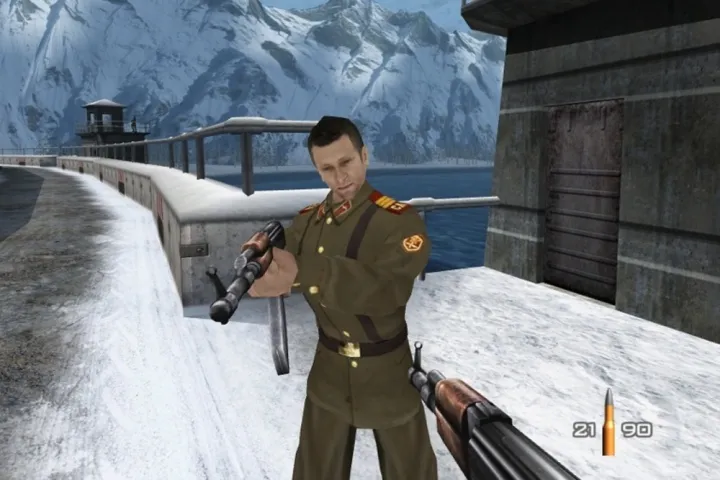
The Guardian reports that GoldenEye 007‘s many shooting deaths caught the conservative Nintendo by surprise, and the publisher suggested many changes to make the final product less violent.
Related: GoldenEye 007: Reloaded Review
“Bond is a violent franchise and making that fit with Nintendo, which is very much family-friendly, was a challenge,” Hollis recalled. “For a while we had some gore, it was just a flipbook of about 40 textures, beautifully rendered gore that would explode out. When I saw it the first time, I thought it was awesome, it was a fountain of blood, like that moment in The Shining when the lift doors open. Then I thought, hmm, this might be a bit too much red.”
Hollis notes that Mario creator Shigeru Miyamoto suggested an alternate ending for GoldenEye 007 that addressed the reality of Bond’s in-game actions.
“One point was that there was too much close-up killing – [Miyamoto] found it a bit too horrible,” Hollis stated. “I don’t think I did anything with that input. The second point was, he felt the game was too tragic, with all the killing. He suggested that it might be nice if, at the end of the game, you got to shake hands with all your enemies in the hospital.”
As an alternative, the design team at Rare implemented a credits sequence featuring GoldenEye 007‘s enemy characters, emphasizing the game’s fictionalized violence.
Hollis additionally revealed that GoldenEye 007‘s mission-based structure was inspired by the Nintendo 64 launch title Super Mario 64, which adopted a similar approach. Rather than presenting a series of straightforward shooting challenges, GoldenEye 007 challenged players to complete a variety of side-missions within each level before reaching an exit.
Following GoldenEye 007‘s success, the team at Rare was asked to create a follow-up based on the 1997 James Bond film Tomorrow Never Dies. Rare refused, however, and began work on Perfect Dark, which Hollis describes as “definitely a spiritual sequel.”


